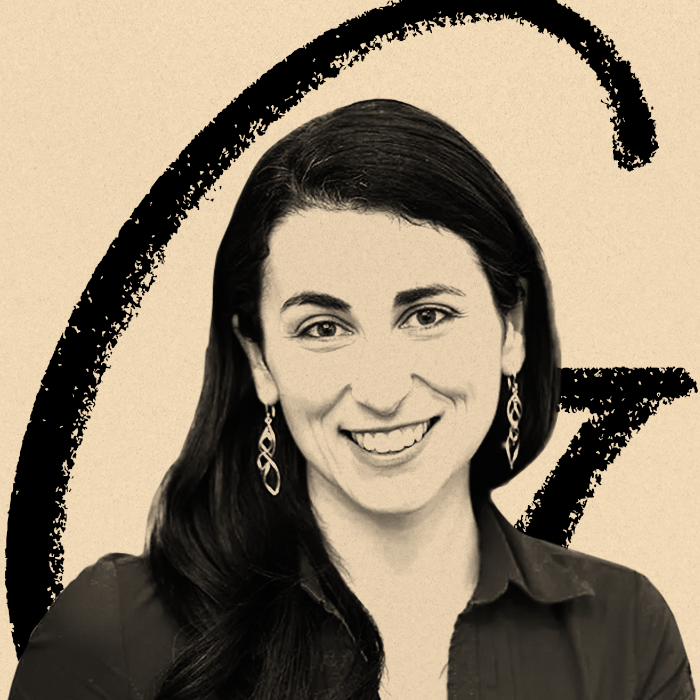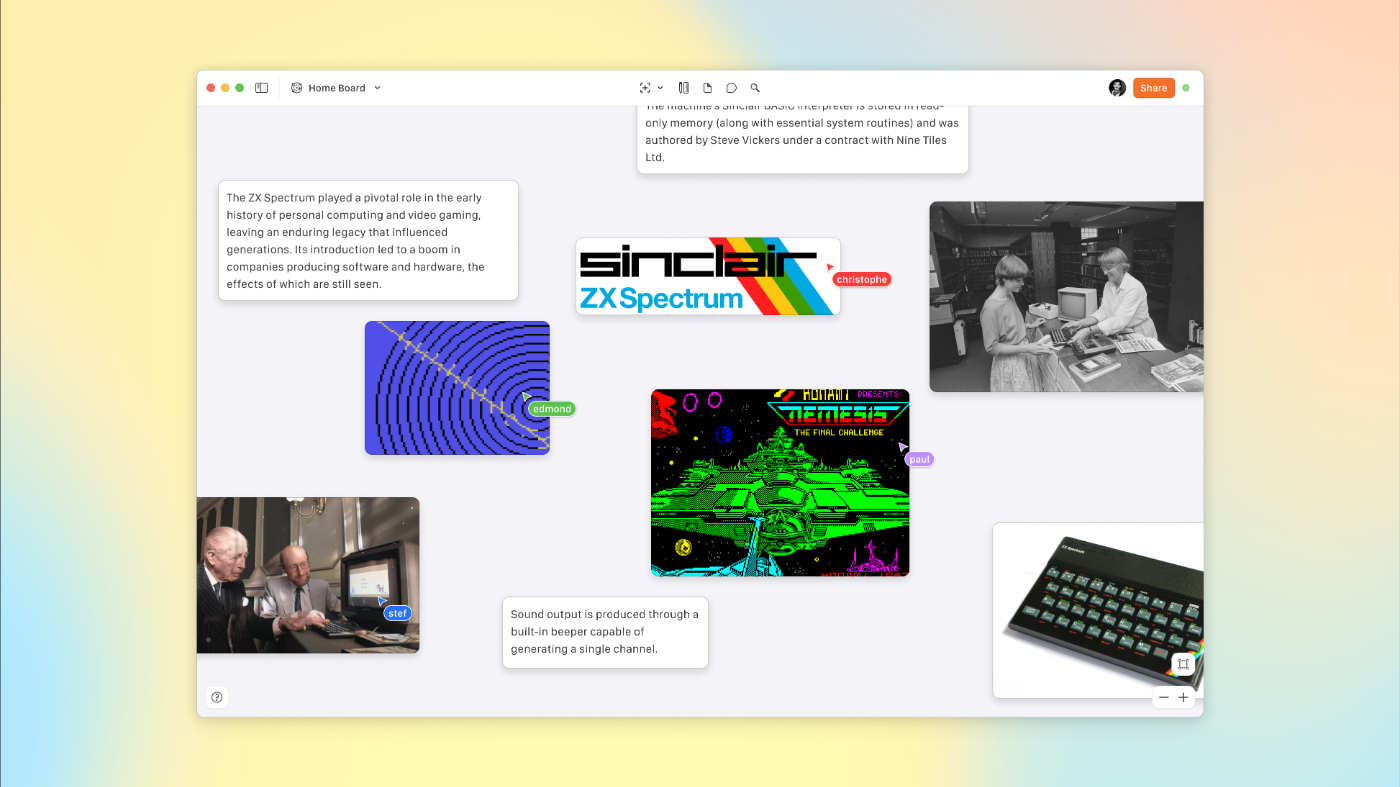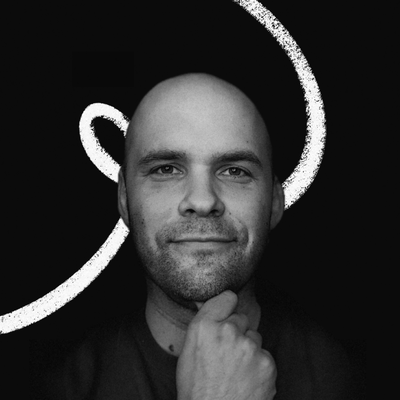
ChatGPT for Radical Self-betterment
Clinical psychologist Dr. Gena Gorlin’s AI-powered annual review and goal-setting session
January 31, 2024
Sponsored by: Kosmik
Forty years ago, the Macintosh revolutionized the way we work with computers, integrating everything a user could need on a metaphorical desktop. Forty years later, it's time to rebuild our digital home. Meet Kosmik, an all-in-one workspace where you can seamlessly integrate text, images, videos, PDFs, and links.
TL;DR: Today we’re releasing a new episode of our podcast How Do You Use ChatGPT? I go in depth with Dr. Gena Gorlin, a clinical psychologist at the University of Texas at Austin whose goal is to raise the ceiling on human potential. We have a wide-ranging discussion on how to use ChatGPT for goal setting, yearly planning, and radical self-betterment. Watch on X or YouTube, or listen on Spotify or Apple Podcasts.
Dr. Gena Gorlin wants to raise the ceiling on human potential.
She’s a clinical psychologist at the University of Texas at Austin, a prolific writer on Substack and Every, and—now—a power user of ChatGPT. She and I recently spent a week together merging our mutual interest in psychology with the best of AI—and she’s taken that experience and run with it.
In this interview, we talk about how ChatGPT has become a key tool in her quest for radical self-betterment. We do an over-the-shoulder screen share where she feeds the tool a list of her old journal entries, and we watch as ChatGPT conducts the most thorough and insightful annual review and goal-setting session you’ve ever seen. It writes a year-by-year personal biography of her life, helps her set goals for 2024, and points out blindspots she might’ve missed.
It’s a small taste of what we’re covering in the course we’re teaching, Maximize Your Mind With ChatGPT, and it left me more enthusiastic than ever about the potential for AI to help humans evolve and flourish.
This is a must-watch for creative thinkers and ambitious minds who love building things. Here’s a taste:
- ChatGPT as an external hard drive for our brains. Humans have a tendency to forget things, and Gena recommends that we use ChatGPT to remember. “As a large language model that has access to much of the accumulated knowledge that human beings have collected via the internet, it is like an external hard drive for our brain,” she says.
- Changing the way we think about personal growth. In addition to establishing a journaling practice, Gena believes that we can feed our thoughts into ChatGPT to “get formulations that resonate with us in a way that crystallizes…what has been sprawled across pages and pages of self-reflection,” she says. She considers ChatGPT to be a tool for ambitious people to maintain and grow the working knowledge base on which they base their decisions, something she calls their “epistemic hygiene.”
- ChatGPT is integrating the disparate fields of psychology. As a practitioner of the mind, Gena is perennially frustrated by how fragmented psychology has been as a domain—until now. “ChatGPT is so incredibly powerful at allowing you to quickly sample the whole terrain…you can say that I’m struggling with this set of symptoms…what are the five big categories of treatments, and it can tell you reliably, which is mind-blowing,” she says.
- AI as an informal advisor. For Gena, ChatGPT has become part of the “menu of resources to consider” when she comes up against a challenge. “Is there some perspective to be gotten from my husband, my best friend, my informal advisor board, are there books to read…now, similarly, what can ChatGPT help me with here?” she says.
- Budget-friendly biographer. After processing Gena’s journal entries since 2018, ChatGPT summarized the major events in her life and organized them by year. “I had that stage of my life mirrored back to me in this crystallized form where I could experience it…in one fell swoop,” she says.
- Using ChatGPT to discover blind spots. Gena acknowledges that ChatGPT is a neat summarizer, but she also values its ability to discover new things. After ChatGPT condensed the big events in her life, Gena probes it further, asking it what her blind spots are likely to be in the coming year (hint: It surfaces her “Achilles’ heel”).
- Aiming higher with AI. Most of ChatGPT’s initial responses focus on ensuring Gena doesn’t spread herself too thin, but Gena wants it to “fill out the other side of the…picture: Is it just that I’ll be too ambitious, or is there any way I might not be ambitious enough?” When she asks ChatGPT for the highest-leverage goals she should set for 2024, it comes up with a thoughtfully prioritized list.
- Using ChatGPT to dialogue with ourselves. Many people shrug off ChatGPT as “regurgita[ting]” information back to them, but Gena is amazed by its potential to allow us to interact with our thoughts. “To have a tool that actually talks to us, that actually can, not only summarize, but can build upon, can question, can consolidate, connect dots between all these different things that have been swimming around in our heads, it’s so groundbreaking,” she says.
You can check out the episode on X, Spotify, Apple Podcasts, or YouTube. Links and timestamps are below:
- Watch on X
- Watch on YouTube
- Listen on Spotify (make sure to follow to help us rank!)
- Listen on Apple Podcasts
Timestamps:
- Introduction 00:18
- An external hard drive for our brains 4:14
- What is epistemic hygiene? 7:25
- Upscaling with ChatGPT 12:25
- Dan and Gena’s brainstorming session 20:34
- Gena uses ChatGPT to analyze her years-in-review 31:43
- Outsourcing to ChatGPT 46:51
- Pushing beyond “work-life balance” 53:36
- Will ChatGPT replace therapists? 1:09:22
- Building a new version of you 1:20:00
What do you use ChatGPT for? Have you found any interesting or surprising use cases? We want to hear from you—and we might even interview you. Reply here to talk to me!
Kosmik offers an expansive, infinite canvas that adapts to your needs. Whether you're organizing complex projects or just brainstorming ideas, the intuitive interface puts everything at your fingertips. With Kosmik's unique built-in browser, explore the web and capture content without switching constantly between apps. Centralize various media and create your single source of truth, for you and your team.
Miss an episode? Catch up on my recent conversations with economist Tyler Cowen, writer and entrepreneur David Perell, software researcher Geoffrey Lit, Waymark founder Nathan Labenz, Notion engineer Linus Lee, writer Nat Eliason, and Gumroad CEO Sahil Lavingia, and learn how they use ChatGPT.
If you’re enjoying my work, here are a few things I recommend:
- Subscribe to Every
- Follow me on X
- Subscribe to Every’s YouTube channel
My take on this show and the episode transcript are for paying subscribers.
Thanks to Rhea Purohit for editorial support.
Find Out What
Comes Next in Tech.
Start your free trial.
New ideas to help you build the future—in your inbox, every day. Trusted by over 75,000 readers.
SubscribeAlready have an account? Sign in
What's included?
-
Unlimited access to our daily essays by Dan Shipper, Evan Armstrong, and a roster of the best tech writers on the internet
-
Full access to an archive of hundreds of in-depth articles
-
-
Priority access and subscriber-only discounts to courses, events, and more
-
Ad-free experience
-
Access to our Discord community
Thanks to our sponsor: Kosmik
Create a new digital hub and embrace the future of digital organisation. Say goodbye to nested folders, constant app switching, and tab overload. Join us at in our journey to create a new place to work, learn, play, and share.





Comments
Don't have an account? Sign up!